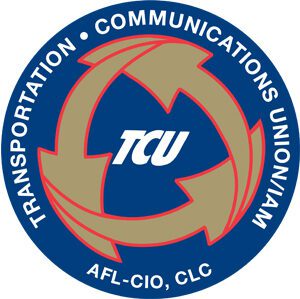A message from John Bragg, the Railroad Retirement Board (RRB) labor member, released on May 21st, stated that the increased $1,200 in unemployment benefits from the CARES Act will begin to be deposited next week.
From RRB Labor Member John Bragg:
In my last update, I explained that Phase 2 of the RRB’s CARES Act implementation plan was targeted for completion by the end of May. Phase 2 of the RRB’s plan provides for the additional $1,200 per registration period for claims beginning April 1, 2020, or later. I am happy to report that final testing is underway as I draft this message. Barring any unforeseen complications, we anticipate making the first payments under Phase 2 within a week. I am grateful for the commitment of RRB employees who have worked tirelessly to implement computer programming changes to issue these payments, in recognition that they are crucial to our brothers and sisters in the railroad community.
Recently, we have been receiving inquiries regarding railroad employees filing for unemployment insurance (UI) benefits with the RRB while being compensated for work as union representatives. Employees must report all full-time and part-time work to the RRB when filing for benefits, including work as a union representative. If pay is received for a particular day, the employee should not claim the day as a day of unemployment. Instead, the employee should report the pay on the claim form with the appropriate code (for example, ‘E’ for a day employed, or ‘P’ for a vacation day or holiday pay). There are certain conditions where part-time work does not affect entitlement to benefits. In general, if the pay is no more than $15 a day for work which is substantially less than full-time and not inconsistent with the holding of full-time employment, it may be considered “subsidiary remuneration” and will not affect payment of UI benefits. Employees should keep in mind that the RRB must make a determination in advance of whether benefits are payable for days where part-time work was performed. Following are 2 examples provided for illustrative purposes:
Example 1: A claimant receives a salary of $350 per month for serving as secretary-treasurer of the local lodge of his union. He performs a variety of duties at his own convenience while holding down a full-time railroad job in his craft. The average payment per day is not more than $15 and therefore it will likely be determined to be subsidiary remuneration. If the claimant is laid off from his full-time railroad job but still receives $350 per month union salary, he should contact the RRB to see if unemployment benefits may be paid to him.
Example 2: A claimant receives a salary of $500 per month for serving as secretary-treasurer of the local lodge of his union. He performs a variety of duties at his own convenience while holding down a full-time railroad job in his craft. The average payment per day is more than $15 and therefore it will likely be determined not to be subsidiary remuneration. If the claimant is laid off from his full-time railroad job but still receives $500 per month union salary, it is likely no UI benefits would be payable as UI benefits would only be payable if the amount he was paid for the union work was subsidiary remuneration.
Additional guidance on the effects of part-time work and whether the compensation paid for such work meets the definition of subsidiary remuneration can be obtained by contacting the RRB at 1-877-772-5772.

